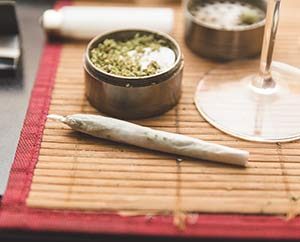On November 8, 2016, Floridians overwhelmingly voted to pass the Florida Medical Marijuana Legalization Initiative, also known as Amendment 2. The state previously had a medical marijuana law in place, but it only applied to those who were terminally ill and had less than a year to live.
Here are some things you should know about the ever-changing landscape of Florida marijuana regulations.
When Did the New Law Go Into Effect and Who Regulates It?
Amendment 2 went into effect on January 3, 2017, and the Florida Legislature implemented Article X, section 29 of the Florida Constitution by passing SB 8A and SB 6A on June 9, which was subsequently signed into law by Governor Rick Scott on June 23. The Florida Department of Health is in charge of establishing regulations and issuing medical marijuana cards. In addition, the department determines the qualifications and standards for caregivers and establishes rules for medical marijuana treatment centers.
Under the New Law, Who Has Access to Marijuana?
Under Amendment 2, marijuana can be used to treat the following medical conditions:
- AIDS
- Amyotrophic lateral sclerosis (ALS)
- Cancer
- Crohn’s disease
- Epilepsy
- Glaucoma
- HIV
- Multiple sclerosis
- Parkinson’s disease
- Post-traumatic stress disorder (PTSD)
In addition, the law gives Florida physicians the right to approve medical marijuana use for patients who have been diagnosed with “other debilitating medical conditions of the same kind or class as or comparable to those enumerated.”
It’s important to note that physicians have to have a license to prescribe medical marijuana to patients, and the patient and physician have to be in the same room when an exam takes place. Some of the other key provisions include:
- the elimination of the 90-day waiting period for patients to receive marijuana certification,
- certification that provides a 70-day supply of marijuana to patients who qualify,
- an online medical marijuana use registry, and
- the issuance of medical marijuana use registry identification cards to qualified patients
What Does the New Law Not Permit?
Amendment 2 has no bearing on Florida’s recreational drug possession laws. It’s still illegal to possess, use, or distribute marijuana under state (unless it’s for medical use) and federal laws. Also, if you’re pulled over while under the influence of marijuana or are smoking it in public, you can be arrested.
In addition, you can’t buy marijuana off the street in Florida. There are only a small number of businesses that are licensed to produce it and a limited number of dispensaries; though the numbers are growing. However, some cities and towns in Florida have prohibited dispensaries, at least for the time being. And regardless of their condition, patients cannot grow marijuana to use medicinally.
Non-Medical Usage of Marijuana in Florida
It’s important to know that Florida’s laws regarding non-medical usage of marijuana are continuing to evolve. For example, there are a number of jurisdictions in Florida, including Tampa, Orlando, Miami/Dade County, and Key West, that have ordinances in place that give their police officers the option of issuing a civil citation to those individuals who are caught possessing less than 20 grams of marijuana (the amount of approximately 40 joints).
However, other police departments throughout the state have made it clear that they will still place you under arrest and you could be charged with a first-degree misdemeanor, which includes a fine, possible jail time, and loss of your driver’s license.
On a larger scale, Florida lawmakers have introduced legislation that would classify the possession of a small amount (an ounce or less; or around 28 grams) of marijuana as a non-criminal civil violation, instead of a first-degree misdemeanor. If these bills are passed, violators would be obliged to pay a fine of no more than $100 or complete 15 hours of community service, if they can’t afford to pay the fine. In the case of a minor, they would have to either complete community service or attend a drug awareness program.
It’s important to keep abreast of Florida’s ever-changing marijuana laws and how they differ from jurisdiction to jurisdiction. If you have been arrested for marijuana usage or possession in Florida, Dean Tsourakis has the experience to answer all of your questions and help you with your defense. Call Dean today at 727-785-2700. The initial consultation is free.
on Aug 14, 2017


